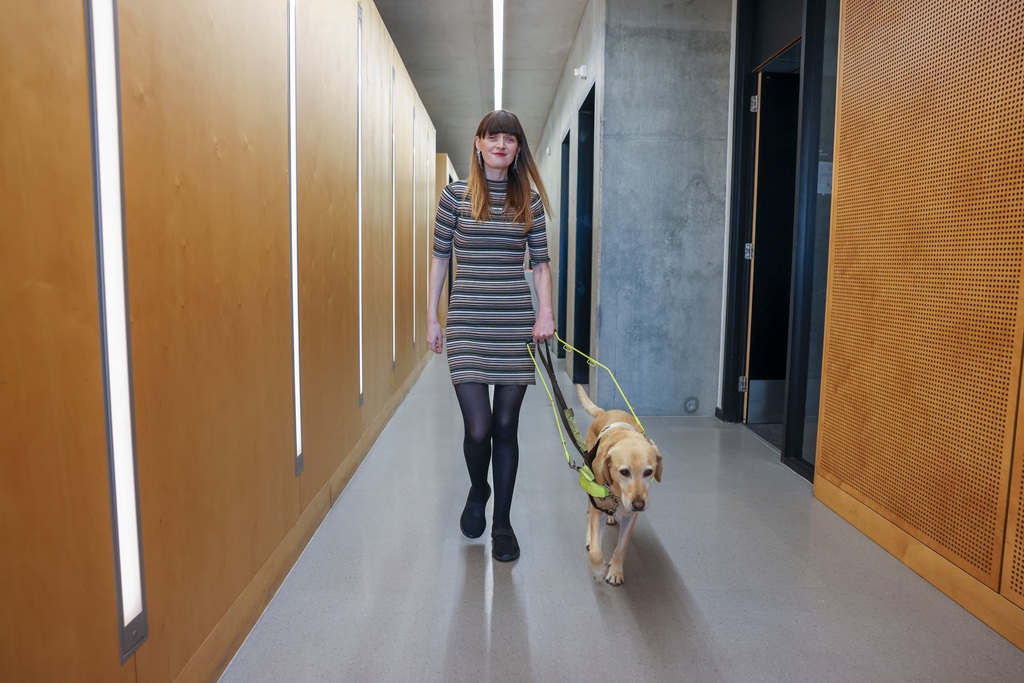Longitudinal Transition Study, funded by Thomas Pocklington Trust
The University of Birmingham has published the results of a Longitudinal Transition Study, funded by Thomas Pocklington Trust, following the experiences of young people with vision impairment from secondary school into further education and employment. Findings from the study show that whilst participants are inching closer to the labour market, common challenges were identified:
*Just over a fifth (21 per cent) are either ‘Not in Education, Employment, or Training’ (NEET) or in long term unpaid voluntary work *Some young people with vision impairment face challenges which delay their progression into the labour market *Some young people with vision impairment do not feel ready for work and are not actively seeking employment, instead choosing to take on voluntary work or not to work at all *Young people with vision impairment who are NEET are often not signposted to services which could enable them to access the labour market *Some young people with vision impairment are employed in short-term unsecure roles, making it difficult for them to get Access to Work and other accommodations *Young people with vision impairment often face a ‘cliff edge’ after completing their education. For example, a large proportion of participants became NEET when leaving Higher Education (HE), and several returned to study when they didn’t find work.
Find the full report and briefings here: https://www.pocklington-trust.org.uk/the-journey-from-education-to-employment-for-young-people-with-vision-impairment/
These findings have important ramifications for policy development. We recommend that there is a review of the support that students with vision impairment receive at university, to help prepare them for the labour market. It is also important for HE providers to focus on making anticipatory adjustments for students with vision impairment, so that these students can pursue internships and part-time work.
There is also need for more intensive targeted support from specialists with an understanding of vision impairment to get people who have been NEET for a long time into the work place.
Mike McLinden, Deputy Head of School of Education at the University of Birmingham said:
“This is a unique study in which the research team has been working with a group of young people since 2010, following their experiences since leaving compulsory education. The study gives the young people a method of telling us about the challenges they face as they leave school and also to reflect back on what helped prepare them for life after school. The research findings have highlighted the critical role education and families can play in helping them meet these challenges head on. The study in particular has illustrated how important specialist support is for young people with vision impairment to be able to reach their potential as independent working adults.”
Peter Corbett, Chief Executive of Thomas Pocklington Trust said:
“This important research has followed young people with vision impairment through their journey from secondary education into adult life. It has highlighted the barriers and challenges they face when trying to secure employment or further education. It is vital that the right support is in place throughout a young person with vision impairment’s life, to ensure that they are best placed to secure meaningful employment that is right for them. We are committed to our vision of a society in which these barriers do not exist, and all young people with vision impairment are empowered to live independent lives.”
Let’s keep in touch!
Join our mailing list and we will keep you up to date about our projects and opportunities to get involved with Deafblind UK.
More Articles

How to prepare for a job interview when you have dual sensory loss
Preparing for an interview can feel daunting. There are nerves, anxiety, deciding what to wear, remembering what to say, and…

Bridging the employment gap for people with deafblindness
Together, we can help close the employment gap and ensure that people with dual sensory loss have every opportunity to...

Meet the creator behind the new Blind Naked Calendar!
Megan from our fundraising team chatted with Blind Naked Calendar creator, Josephine, to find out about her life as someone…
